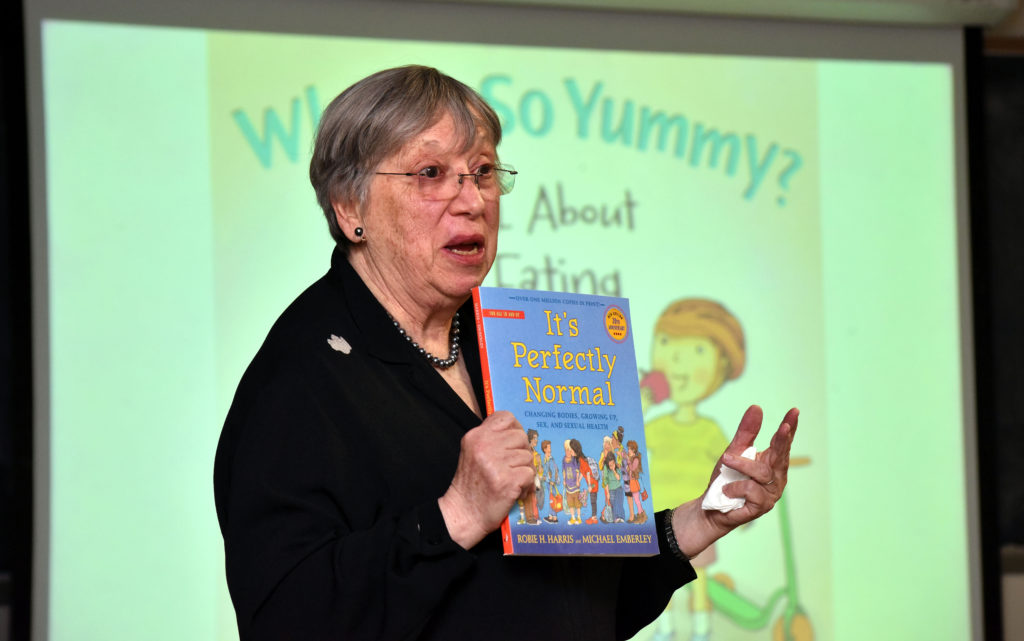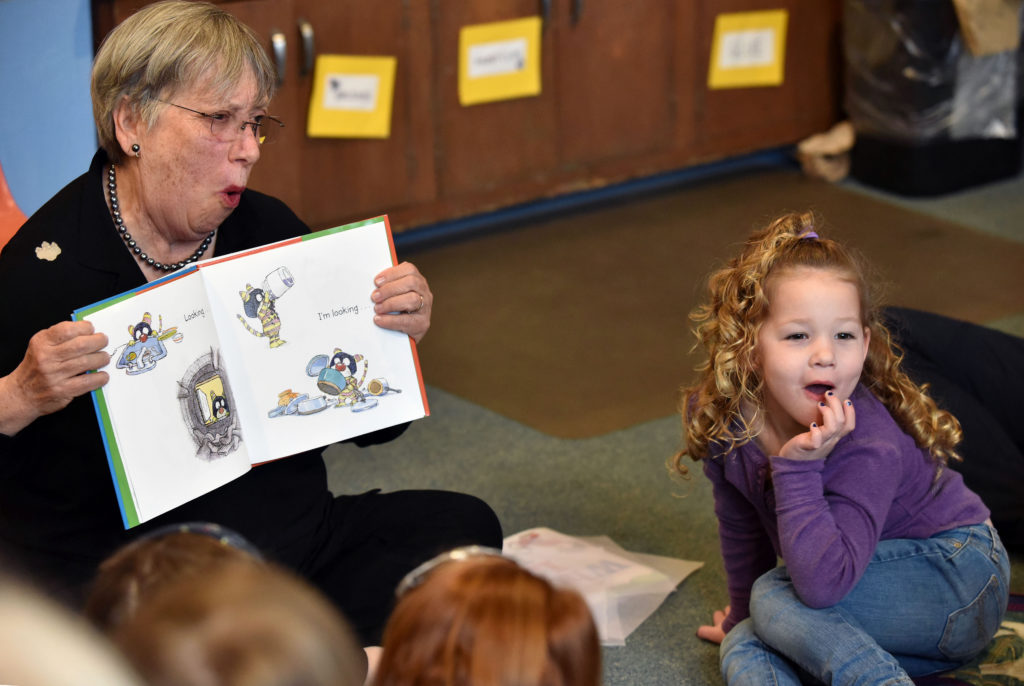Honest teaching
Talking to a classroom full of future educators in April, children’s book author Robie Heilbrun Harris ’62 kept repeating one simple piece of advice: be honest.
It’s advice Harris has clearly incorporated into her career and in her more than 25 books of fiction and nonfiction for young readers on a range of topics—love, loss, fear and more. And it’s a charge she takes very seriously every time she writes a new edition of her award-winning book for ages 10 and up about bodies, sex and sexual health, It’s Perfectly Normal. The book, which recently celebrated its 20th anniversary, has sold more than 20 million copies and is available in 40 countries.
“Children need to have the most scientifically accurate, age-appropriate information possible to stay healthy,” Harris said of the book. “I don’t leave out information that I think is in the best interest of the kids to know.”
Her honesty is not always appreciated. Some of her books, including It’s Perfectly Normal, have been censored or removed from bookshelves. But that doesn’t bother Harris.
“There are people that disapprove of this book, and that’s OK with me. It’s their right,” she said.
Harris was invited to speak to Professor Marge Werner’s “Teaching and Learning” class during a visit to campus on April 12. The course explores the intersection between educational theory and practice through readings, discussions and field experiences. Earlier in the day, Harris read and talked to children at the Elisabeth Amen Nursery School, where Werner is director.
“I believe in emergent curriculum. At the nursery school, curriculum comes from the interests that the children have or whatever happens that you can build upon to make learning more meaningful,” Werner said. “So I like to take advantage of any opportunity to have speakers in my class who have a different view on education.”
Harris, who majored in English, said she didn’t take any classes on child development while at Wheaton. But as she began writing books for children, she discovered the importance of doing research—of reading about theory and development, talking with experts of all types, observing children learning and at play and, above all, listening.
“I’m always listening to kids. I find them to be fascinating,” Harris said.
She encouraged the Wheaton students, many of whom are planning careers in education, to get to know their students, saying it would help guide their teaching and help them engage each child. She also recommended they address questions when they come up in the classroom as honestly as possible.
“Don’t be afraid of children’s strongest feelings, because they’re legitimate,” Harris said.
Later in the day, Harris gave a talk, “Let’s Be Honest: The Creation of Fiction and Nonfiction Children’s Books,” followed by a book signing.


